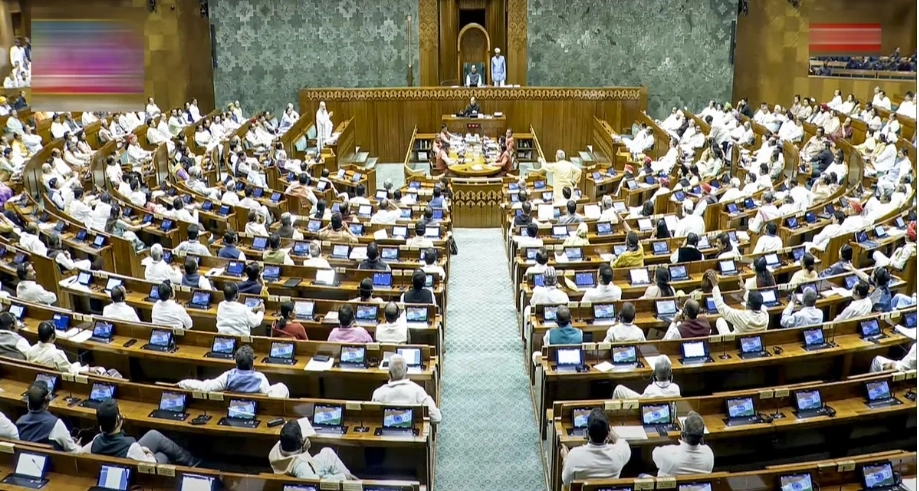
Waqf Amendment Bill: The Waqf Amendment Bill was passed by the Lok Sabha on Thursday (April 3) with 288 votes in 'favour' (Ayes) and 232 'against' (Noes). Union Minority Affairs Minister Kiren Rijiju on Wednesday (April 2 tabled the Waqf (Amendment) Bill, 2025, in the Lok Sabha, which seeks to improve the functioning of Waqf properties, address complexities, ensure transparency and introduce technology-driven management. Tabling the Bill, which was examined and redrafted by a Joint Parliamentary Committee (JPC), Rijiju said the legislation has nothing to do with religion but deals only with properties.
No place in the world safer than India for 'minorities': Kiren Rijiju.
There is no place in the world safer than India for minorities, and they are safe because the majority is entirely secular, Union Minister Kiren Rijiju said on Wednesday. Replying to the nearly 12-hour long debate on the Waqf (Amendment) Bill, 2025, Rijiju, who is the Union Minorities Affairs Minister, said even minuscule minority communities like the Parsis are safe in India, and all minorities here live with pride. "Some members have said that minorities are not safe in India. This statement is completely false. There is no place safer than India for minorities. I am also a minor, ty and we all are living here without any fear and with pride," he said after the debate on the contentious Bill.
Slamming the opposition parties for terming the Waqf Amendment Bill as “unconstitutional”, Minority Affairs Minister Kiren Rijiju said the law relating to Waqf property has been in existence for decades and has not been struck down by courts, and such words should not be used lightly.
Speaking in the Lok Sabha, Parliamentary Affairs Minister Kiren Rijiju said, "I want to thank all the leaders for keeping their views regarding the Bill...Some leaders are saying that the bill is unconstitutional, and I want to ask them how they could say that the bill is unconstitutional. If it was unconstitutional, why didn't the court strike it down?...words like unconstitutional should not be used...the Bill is not against the Constitution, as the opposition claimed...We should not use the words ‘constitutional’ and ‘unconstitutional’ so lightly.”".
"The government is not going to interfere in any religious institution. The changes made in the Waqf law by the UPA government gave it an overriding effect over other statutes, hence, the new amendments were required," Rijiju said amid noisy opposition protest, adding, "You (opposition) tried to mislead the people on issues which are not part of the Waqf Bill."
Rijiju also claimed the consultation process of the JPC was the largest ever exercise carried out by a parliamentary panel in India's democratic history. The minister said more than 97.27 lakh petitions and memorandums were received by the JPC through physical and online formats, and the JPC had gone through each of them before finalising its report. As many as 284 delegations submitted their views on the Bill besides the Waqf boards of 25 states and Union Territories, he said.
The ruling NDA launched a feisty defence of the bill amid the opposition's charge that it was unconstitutional and targeted Muslims. The bill was earlier presented in the Lok Sabha in August last year, and a Joint Parliamentary Committee, headed by BJP member Jagdambika Pal, examined it. The bill seeks to amend the Act of 1995. The Bill seeks to improve the administration and management of waqf properties in India. It aims to overcome the shortcomings of the previous act and enhance the efficiency of Waqf boards, improving the registration process and increasing the role of technology in managing waqf records.